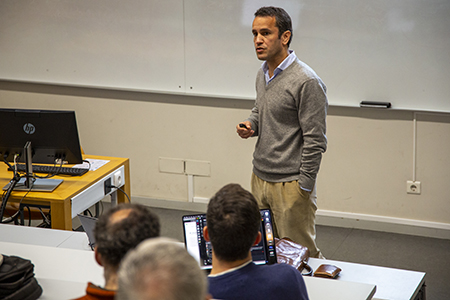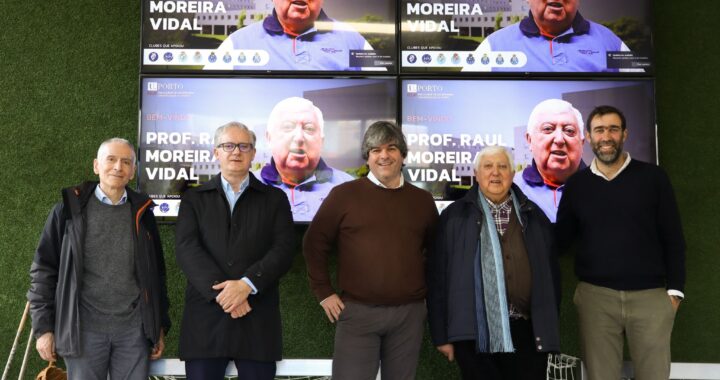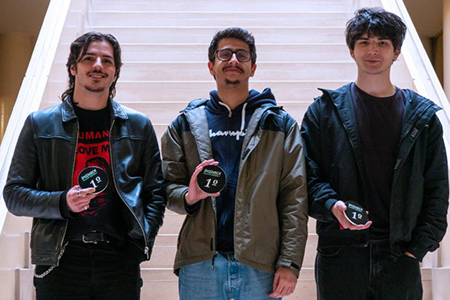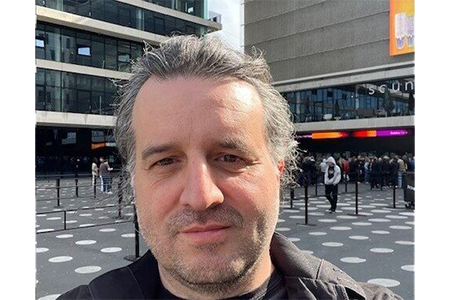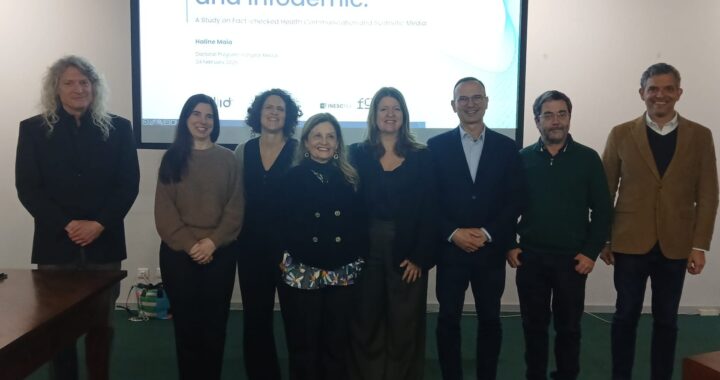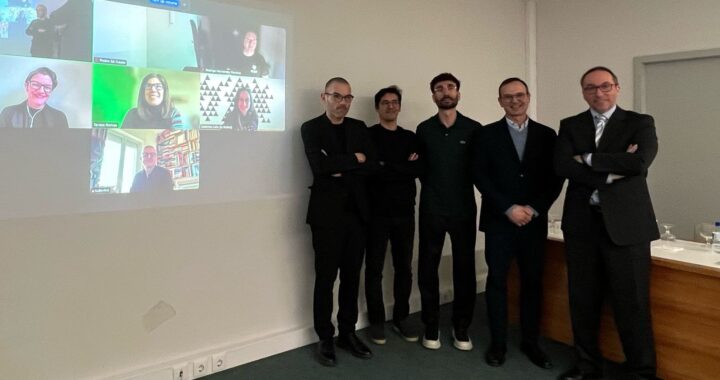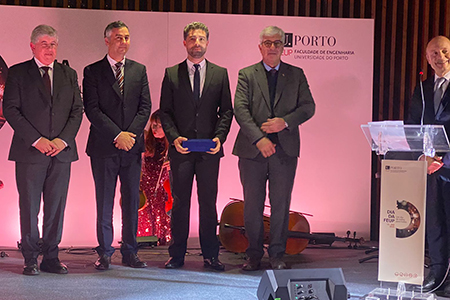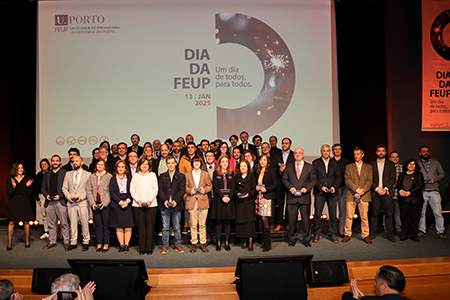On January 13th, the Faculty of Engineering of the University of Porto (FEUP) celebrated its 188th anniversary with a revamped, more informal event under the motto “Day of Everyone, for Everyone”, with various activities throughout the day.
The celebration of “Dia da FEUP” ended with a gala dinner where, in a solemn moment, Luis Filipe Teixeira, Associate Professor in the Department of Informatics Engineering (DEI), received the FEUP Pedagogical Excellence Award from the Minister of Education, Science and Innovation, Prof. Fernando Alexandre, the Rector of the University of Porto, Prof. António Sousa Pereira, and the Director of FEUP, Prof. Rui Calçada, in recognition of excellence in teaching/learning activities.
Luis Teixeira reflects on this recognition: ‘In 2010, Professor Raul Vidal presented me with a challenge that, at the time, seemed “impossible”. Since then, many other challenges have arisen, each with its own particularities and lessons. As teachers, we are often faced with demands that seem out of line with our main mission: to teach. This recognition allows us to believe that the effort and ‘stubbornness’ in keeping this mission alive are worth it. Beyond any formal distinction, I have found recognition in the spontaneous testimony of students who share the (huge) impact we have on their pathways. Today, we are in a time of transition, when the reality of teaching requires us to adjust teaching methods and tools to a necessarily different reality. However, regardless of the direction this reality takes, from my perspective, the pillars must remain the same: communication, empathy and trust. Because, in the end, these are the pillars that allow us to adapt to change, without giving up what really matters: our commitment to the development of our students. Their success is our success, even if it sometimes seems ‘impossible’. May this award be just the first of many more for DEI.’
And this commitment to the students is evident not only in the pedagogical surveys, a valuable tool for carrying out continuous improvement actions in teaching, emphasising the importance of the student’s voice, as in heartfelt testimonies such as this one by Isabel Rio-Torto:
‘I first came across Prof. Luís Teixeira in my first semester as a university student, in theoretical programming classes. In addition to his ability to explain complex things in a simple way (I’ll never forget the mythical lesson on recursion in which the professor took a ball of yarn to explain the concept), his undeniable flair and talent for teaching made his lessons interesting and captivating! I also remember the group of students who, at the end of the lectures, would crowd around the professor to ask any questions they had, and the professor would patiently answer them, always showing enormous empathy and dedication to teaching. We met again in my final year of the integrated master’s programme, when I approached him about the possibility of doing my master’s thesis under his supervision. Since then, Prof. Luís Teixeira has not only been my teacher, but also my master’s and now doctoral supervisor. But above all, Prof. Luís Teixeira has become my mentor. No matter how busy he is, he always has a few minutes to discuss some existential doubt and always has a word of encouragement and motivation. He is always ready to help both students and colleagues, and is tireless in his various roles (teacher, supervisor, DEI member, etc). If I had to describe the professor in one word, I would simply say that Prof. Luís Teixeira is a Professor with a big P.’
The Pedagogical Excellence Award is given annually to a lecturer who has demonstrated excellence over the previous four years in the rankings of pedagogical surveys, in the quality and quantity of pedagogical materials, and in the pedagogical CV, which assesses activities that indicate pedagogical innovation, the promotion of active student learning, and the potential for replication and dissemination.
Luís F. Teixeira holds a Bachelor’s Degree (5 years) in Electrical and Computer Engineering (2001), a Master’s Degree in Communication Networks and Services (2004) and a PhD in Electrical and Computer Engineering (2009) from the University of Porto.
He is currently an Associate Professor at the Department of Informatics Engineering (DEI) of the Faculty of Engineering of the University of Porto (FEUP), a member of the Executive Committee of DEI, a Senior Researcher at INESC TEC’s Centre for Telecommunications and Multimedia and Deputy Director and Member of the Scientific Committee of the Master’s Degree in Computer Vision, an international programme offered jointly by the University of Porto, the University of Santiago de Compostela, the University of Vigo and the University of Corunha. He was previously a researcher at INESC Porto (2001-2008), Visiting Researcher at the University of Victoria (2006), Senior Scientist at Fraunhofer AICOS (2008-2013), and President of APRP – Portuguese Association for Pattern Recognition (2019-2021).
His main research topics are Computer Vision, Machine Learning and Human-centered Computing.
In addition to various subjects in the area of Programming, he has also taught subjects in the areas of Computer Vision and Computational Learning. He has participated in several EU-funded, national and contract projects, including recently the FCT-funded CAGING project as Principal Investigator and the THEIA project with Bosch Car Multimedia as a WP leader. He was part of the Organising Committee of RecPad 2011, IbPRIA 2013, ICIAR 2020, co-Chair of IbPRIA 2022, and several editions of the VISUM Summer School (VISion Understanding and Machine intelligence).
